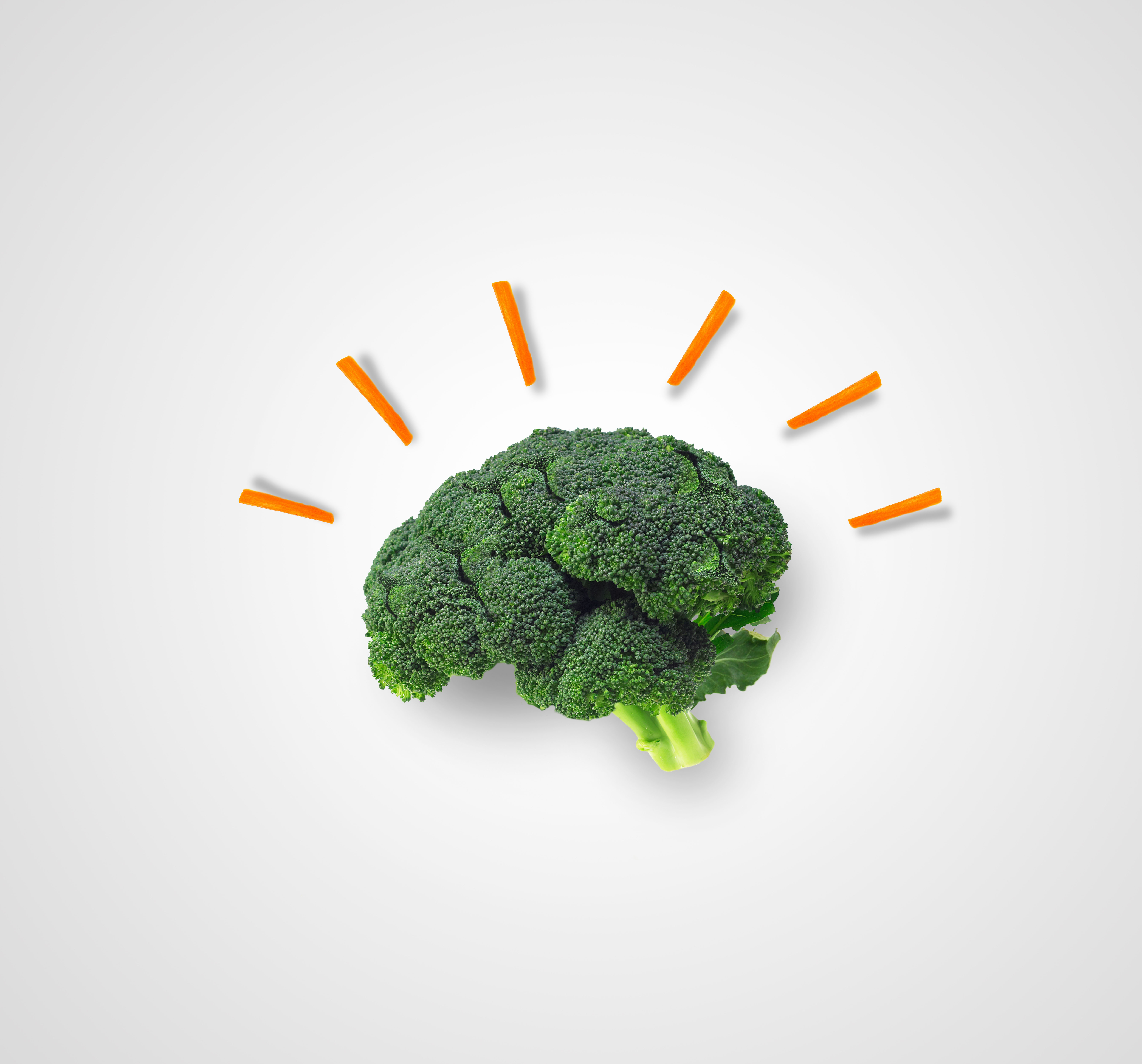
The link between a healthy diet and intelligence may come as no surprise. After all, a well-known Biblical example of this link is found in the book of Daniel. After a 10-day vegetarian trial, Daniel and his friends were ten-times brighter and smarter than any of the wise men in Babylon (Daniel 1:20). This is not a symbolic or prophetic injunction but is supported by modern medicine and scientific studies.
Several studies have linked intelligence (IQ) to a healthy diet. One study showed that eight-year-olds had a higher IQ when they ate fresh fruits, vegetables, and whole grains as toddlers as compared to those who ate a diet high in sugars, processed fats, and starches.
Our diet is also intimately linked to our emotional intelligence (EQ). Emotional intelligence is the ability to recognize and regulate one's thoughts, emotions, feelings, and actions in a positive and constructive manner while also mindfully respecting the feelings and well-being of others. Emotional intelligence is just as important, if not more important, than IQ in the success of careers, interpersonal relationships, AND Christian witnessing.
Increasing emotional intelligence is an important goal for Christians. We are told to “ Be…therefore perfect, even as your Father which is in heaven is perfect,” (Matthew 5:48). This process of perfection includes a mind-transforming experience as outlined in Philippians 2:15 “Let this mind be in you as was in Christ Jesus.” A maturing Christian will, by the grace of God, mature in emotional intelligence.
While a healthy diet has a direct effect on the brain, it also affects the gut which affects the brain.
The gut is the principal site of digestion where food is transformed and absorbed. But the digestive tube is more complex in structure and function. The inner lining is layered with sheets of nerve cells that communicate through neurotransmitters and produces more than 90% of the body’s serotonin levels. The gut is the third in a series of nervous systems alongside the Central Nervous and Peripheral Nervous systems, and is called the “Enteric Nervous system”. It has also earned the nickname “the second brain” because it contains 100 million nerve cells, more than the spinal cord or peripheral nervous system and communicates directly with the brain through the vagus nerve. The vagus nerve is the superhighway between the brain and the gut and holds great sway over what we feel and think.
Food for thought!
Feed your brain intelligently, purposefully, and mindfully by choosing foods with superior nutritional value and avoiding the cheap, the common, the processed, and the fake foods. To enhance and maintain a balanced level of neurotransmitters and enhance the frontal lobe function choose a diet rich in vitamins and minerals, healthy fats and carbohydrates to fuel the production of: serotonin, GABA, dopamine, and acetylcholine. These neurotransmitters, found in the gut, are responsible for communication between the body and the brain.
Foods such as brown rice, green leafy vegetables, and legumes are high in Vitamin B3, B6, and B12. These help to convert glutamine, an amino acid, to GABA. Complex carbohydrates such as almonds and whole grains also provide raw material for this calming neurotransmitter. If you are deficient in GABA you will feel anxious, irritable, and less focused.
Serotonin is also helpful in regulating our stress level, and a deficiency leads to depression, anxiety, and panic disorders. Tryptophan, an amino acid with complex carbohydrates, works to produce serotonin in our body. Tryptophan rich foods are soy, beans, and nuts, and complex carbohydrate foods include sweet potatoes, bananas, quinoa and other whole grains. Iron, zinc, and vitamins B3, B6, and C help in the conversion process of tryptophan to serotonin.
Dopamine is a powerful stimulating neurotransmitter that is linked to feelings of reward and happiness. The brain uses tyrosine, an amino acid, and the presence of folic acid, vitamin B6, magnesium,and zinc to make dopamine. Severe deficiency in dopamine leads to Parkinson’s disease, ADD/ADHD, and mood disorders. Most addicting drugs, such as cocaine, alcohol, and caffeine, increase dopamine levels, leading to a dependence on those drugs to be happy, fulfilled and functioning. But by obtaining these vitamins through our diet, our body will produce dopamine naturally.
“The beginning of wisdom is this: Get wisdom. Though it cost all you have, get understanding,” (Proverbs 4:7 NIV). If you are trying to find out where to start in your pursuit of wisdom, let us begin through our diet. Let us not grow weary developing our emotional intelligence.
“And beside this, giving all diligence, add to your faith virtue; and to virtue knowledge; And to knowledge temperance; and to temperance patience; and to patience godliness; And to godliness brotherly kindness; and to brotherly kindness charity. For if these things be in you, and abound, they make you that ye shall neither be barren nor unfruitful in the knowledge of our Lord Jesus Christ,” 2 Peter 1:1-8.
REFERENCES:
1. Northstone K, Joinson C, Emmett P, et al Are dietary patterns in childhood associated with IQ at 8 years of age? A population-based cohort study. Journal of Epidemiology & Community Health Published Online First: 07 February 2011. doi:10.1136/jech.2010.111955
2.Javier A. Bravo, et al. Ingestion of Lactobacillus strain regulates emotional behavior and central GABA receptor expression in a mouse via the vagus nerve. PNAS 2011 : 1102999108v1-201102999.
3. Lyte, M. Probiotics function mechanistically as delivery vehicles for neuroactive compounds: Microbial endocrinology in the design and use of probiotics. Bioessays. doi: 10.1002/bies.201100024.
4. Hurley, Dan. Your Backup Brain. Psychology Today. Dec 2011. 80 - 86
5. Am J Physiol Gastrointest Liver Physiol. 2013 Jan 15;304(2):G211-20. doi: 10.1152/ajpgi.00128.2012. Epub 2012 Nov 8.
6. Lakhan, Shaheen, Kirchgessner A. Gut inflammation in chronic fatigue syndrome Nutrition & Metabolism, Oct 12, 2010. DOI: 10.1186/1743-7075-7-79,